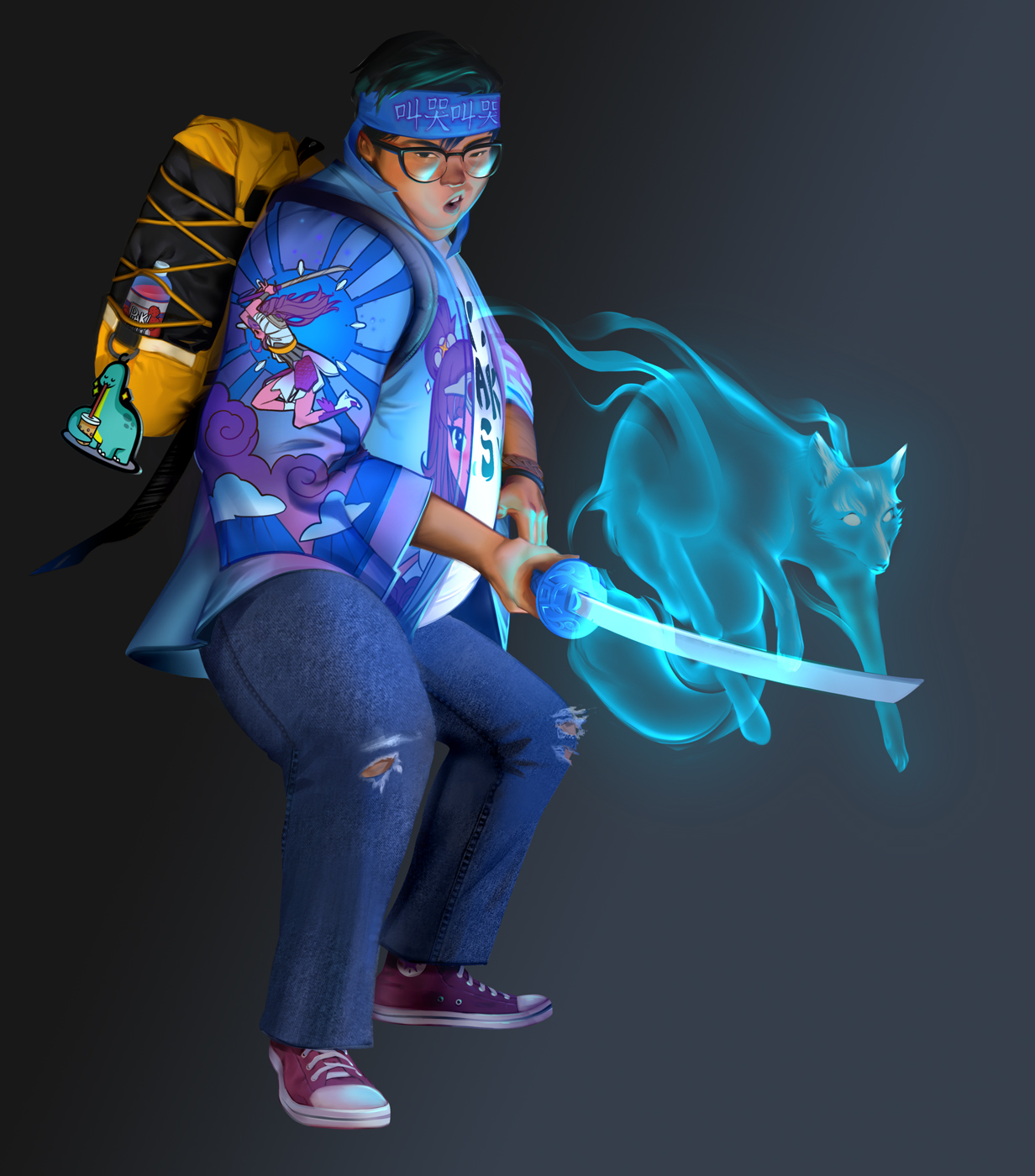-
Home

- Play for free
-
Guide
- How to Play
- The Illumination
- GameMaster's Manual
- The Rules
- The Basics
- Game Structure
- Setting: The Illumination
- Contractors
- Harbingers
- Contracts
- Gifts
- Downtime
- Playgroups
- The Website
- Gameplay
- Rolling Dice
- The Character Sheet
- Creating a Contractor
- Experience
- Limits
- Attributes
- Abilities
- Conditions and Circumstances
- Equipment
- Body
- Mind
- Stress
- Source
- Gift Guide
- Gift Credits and Improvements
- Building Custom Gifts
- Gift Cost
- Gift Types
- Effects
- Activation Styles
- Parameters
- Enhancements and Drawbacks
- Gift Description
- System Text, Tagline, and Gift Name
- Gift Approval
- Gift System Keywords
- Crafting
- Looting Artifacts
- Combat
- Structured Downtimes
- Situational Rules
- Further Reading
No search results -
Quick Nav
- Learn to Play
- Contractors
- Create Contractor
- Graveyard
- Gifts
- Create Gift
- Stock Gifts
- Community
-
Discord Server
- Looking for Game
- Find a Playgroup
- Hall of Fame
- Website
-
 Get Early Access
Get Early Access
- Buy Merchandise
- News and Updates

Experience

When you create a Contractor, you receive 150 Experience (Exp) to spend defining their stats and background.
Contractors can earn additional Exp in various ways after they're created, primarily by attending and claiming victory on Contracts.
Exp earned on Contracts is spent in the same way as during Contractor creation. It represents a Contractor training a skill or conditioning themselves between Contracts.
This page automatically calculates your remaining Exp as you fill out the character sheet.
If you'd like to learn more, read about Experience in the Player's Guide

What Makes a Contractor?

Most Contractors begin their careers as non-supernatural humans, but Harbingers only approach those with a spark of greatness. You are talented and driven-- the best of the best. You might be an olympic athlete, a leading surgeon, or a CEO. Perhaps your path has led you into the shadows rather than the limelight. Regardless, you are not an average Joe.
You will sign The Contract.
When you are approached by a Harbinger and asked to risk your life in exchange for otherworldly power, you will say "yes." You are not content. You have an ambition or some circumstance that drives you to wager your life time and time again. All Contractors will risk their lives for power.
Incredible power sleeps within you.
Harbingers always pay. Each victorious Contract awakens your latent, supernatural powers. These Gifts are a uniquely "you"-- no two Contractors share a single trick. An artist might discover that they can bring their paintings to life. A park ranger may slip out of their human skin and make their patrol on all fours. Will you be psychic? A cleric of Dumballah? A scientist who creates fantastic inventions? Anything is possible.

Transcending Humanity

Most Contractors start as normal humans. At the start of their first session, they are imbued into Contractors and go on to awaken their supernatural potential by claiming victory on Contracts.
Contractors advance very quickly. Even a single victorious Contract can transform them into any archetype (or creature) you desire.
It is possible to create a Contractor who has had a premature awakening or starts non-human. However, doing so requires a solid understanding of the setting and the Gift Builder.
New Players are encouraged to create Contractors that begin their career as normal humans.
Limits
Limits describe your Contractor's deepest boundaries. These are the choices and experiences that have the potential to harm their mental health.
When one of your Contractor's Limits is violated, you must make a Trauma roll (Mind, Difficulty 8). Failure causes a point of Mind damage or the formation of a new Trauma such as a phobia, compulsion, or delusion.
Normal humans share the same three Limits: Anguish, Atrocities, and Murder. However, you're free to swap these for other pre-made Limits or create your own with the help of your Playgroup Leader.
Some Limits don't fit certain character concepts. For example, a Contractor who has suffered their entire life shouldn't have the Anguish Limit; a soldier or trauma doctor may be hardened against Atrocities; and an unrepentant, psychopathic killer wouldn't have the Murder Limit.
Attributes
Attributes define your Contractor's core capabilities. The higher your rank, the better you are:
- Below Average
- Average
- Above Average
- Exceptional
- World-Class
Increasing an Attribute costs a lot of Exp (5 times its current rank). However, the higher your Attributes, the more likely you are to succeed risky or difficult actions. Many other stats are derived from your Attribute ratings, including Mind (mental/emotional fortitude), Body (physical fortitude), movement speed, and weight carrying limits.
Raising an Attribute to rank 5 (world-class) allows you to purchase a special kind of Gift called a Mythic Attribute. Keeping any Attribute at rank 1 (below average) is risky, but doing so unlocks powerful Assets that give even the most bumbling dolts a chance of becoming a viable Contractor.
It's a good idea to spend around 75 Exp on Attributes during character creation.
Learn more about each Attribute by tapping onmousing over its name.
Abilities
Abilities describe your Contractor's special skills and training.
Raising an Ability's rank is cheap (current rating x2 Exp), but it only improves your odds of success at actions involving that specific Ability.
An Ability rank of 0 indicates that your Contractor has negligible training or experience in that field. Full-time professionals tend to have a rank of 2-3 in relevant Abilities, and those who are among the best in the world have rank 5.
Learn more about each Ability by tapping onmousing over its name. You can also read the Abilities article in the Player's Guide for more information.
Secondary Abilities
You can invent your own Ability called a Secondary Ability. Secondary Abilities must be more limited in scope than the Primary Abilities, but you receive a Difficulty reduction to any non-combat roll that utilizes one.
Examples include visual art, security, internet sleuthing, japanese mythology, cooking, and security systems.
What's Useful?
Contracts are deadly missions with all sorts of different objectives. Contractors must creatively use their Attributes, Abilities, Equipment, and Gifts to achieve their objective, even if they aren't particularly suited for the challenge at hand.
Some Abilities are tested by the situation at hand (Alertness and Athletics, for example). Other Abilities are unlikely to be useful unless you create opportunities to use them (such as Performance or Drive).
Abilities are tools. How useful they are depends on the situation, your preparation, and your creativity.
Assets and Liabilities
Assets and Liabilities allow you to further customize your Contractor by defining their background, personality, and more.
Assets are beneficial and cost Exp. Liabilities are negative and credit you extra Exp for taking them.
They are arranged in four categories: Physical, Mental / Emotional, Background, and Restricted. Restricted Assets and Liabilities require your Playgroup Leader's approval.
Traumas, Battle Scars, Conditions, and Circumstances
Assets and Liabilities grant Traumas, Battle Scars, Conditions, and Circumstances.
-
Traumas
are specific mental health issues such as phobias, delusions, or compulsions.
- Contractors are especially resilient to mental health issues and can cure any Trauma by opening up to a therapist (and spending 3 Exp) on a Downtime.
- Some Gifts also grant the ability to cure Traumas.
-
Battle Scars
are significant physical issues that do not heal, such as missing fingers, blindness, or having your face covered in scar tissue from a burn.
- Battle Scars cannot be cured by mundane means.
- Some Gifts allow Contractors to cure Battle Scars on themselves or others.
-
Circumstances
describe how your Contractor fits into the setting. Things like connections, notoriety, wealth, and legal status are
examples of Circumstances.
- Most circumstances can be changed, but it won't happen for free: you must plan and execute a Move to change your place in the world.
-
Conditions
are any additional, significant facts about your Contractor's person, such as dominating personality traits, physical peculiarities, or curses affecting them.
- The methods of obtaining or ridding yourself of Conditions depends entirely on each particular Condition.
- Many Conditions are effectively permanent.

Source

Most Contractors draw upon some sort of otherworldly energy to activate their Powers, be it mana, rage, electricity, or something else.
Here, you can flavor your Source by changing its name. You can also increase its maximum level by spending 2x current level Exp.
Once you reach Novice status (3 victories), you can specify a condition under which you recover Source. This recovery has a cooldown of one day at Novice and one hour at Seasoned status (10+ victories). Professional Contractors (17+ victories) may specify an additional second replenishment condition, and Veterans (25+ victories) get a third. Cooldown is tracked per-condition.

What are Playgroups?
A Playgroup is a group of Players who play The Contract together. Each Playgroup establishes a setting shared by all of the Contractors who call that Playgroup home. Usually, each group of Players shares a single Playgroup.
Playgroups act as a community hub. The Playgroup's Leader is in charge of defining the setting, ensuring Contractor and Gift quality, and settling disputes. Playgroup Leaders manage memberships and are able to view and edit the character sheets of the Contractors in their Playgroup.
The Harbingers’ Contracts play out across the multiverse, in worlds familiar and bizarre. . .A Playgroup's setting can be anything. Most use an instance of the default setting (The Illumination), but it could easily be a different take on modern Earth, a historical period, or even a fantasy continent with potions and spellbooks. Settings evolve over time, shaped by the Contracts and Contractors.
A Playgroup's setting determines what sorts of activities a Contractor may do on their Downtime as well as the Equipment available to them. However Contractors from all settings advance using the same Experience points and Gifts.
Crossing OverBecause each Contract is a self-contained session with an ensemble cast, and all Contractors advance at the same rate, Contractors may risk their lives in Contracts held in other Playgroups.
If both Playgroups allow it, Harbingers may invite a Contractor from another Playgroup to participate in a Contract. Visiting Contractors temporarily lose access to Equipment, Conditions, and Circumstances from their home Playgroup. If they survive, they are returned home immediately at the Contract's conclusion.
Not only can you play The Contract no matter who shows up to game night, you can play and progress your Contractors any time you want by playing in sessions held by other groups at game stores, conventions, or even online.
What are Playgroups?

Stay Organized
A Playgroup is a group of Players who play The Contract together. Each Playgroup establishes a setting shared by all of the Contractors who call that Playgroup home. Usually, each group of Players shares a single Playgroup.
Playgroups act as a community hub. The Playgroup's Leader is in charge of defining the setting, ensuring Contractor and Gift quality, and settling disputes. Playgroup Leaders manage memberships and are able to view and edit the character sheets of the Contractors in their Playgroup.
Crossing Over
A Playgroup's setting can be anything. Most use an instance of the default setting (The Illumination), but it could easily be a different take on modern Earth, a historical period, or even a fantasy continent with potions and spellbooks. Settings evolve over time, shaped by the Contracts and Contractors.
A Playgroup's setting determines what sorts of activities a Contractor may do on their Downtime as well as the Equipment available to them. However Contractors from all settings advance using the same Experience points and Gifts.
The Harbingers’ Contracts play out across the multiverse, in Worlds familiar and bizarre. . .
Because each Contract is a self-contained session with an ensemble cast, and all Contractors advance at the same rate, Contractors may risk their lives in Contracts held in other Playgroups.
If both Playgroups allow it, Harbingers may invite a Contractor from another Playgroup to participate in a Contract. Visiting Contractors temporarily lose access to Equipment, Conditions, and Circumstances from their home Playgroup. If they survive, they are returned home immediately at the Contract's conclusion.
Not only can you play The Contract no matter who shows up to game night, you can play and progress your Contractors any time you want by playing in sessions held by other groups at game stores, conventions, or even online.